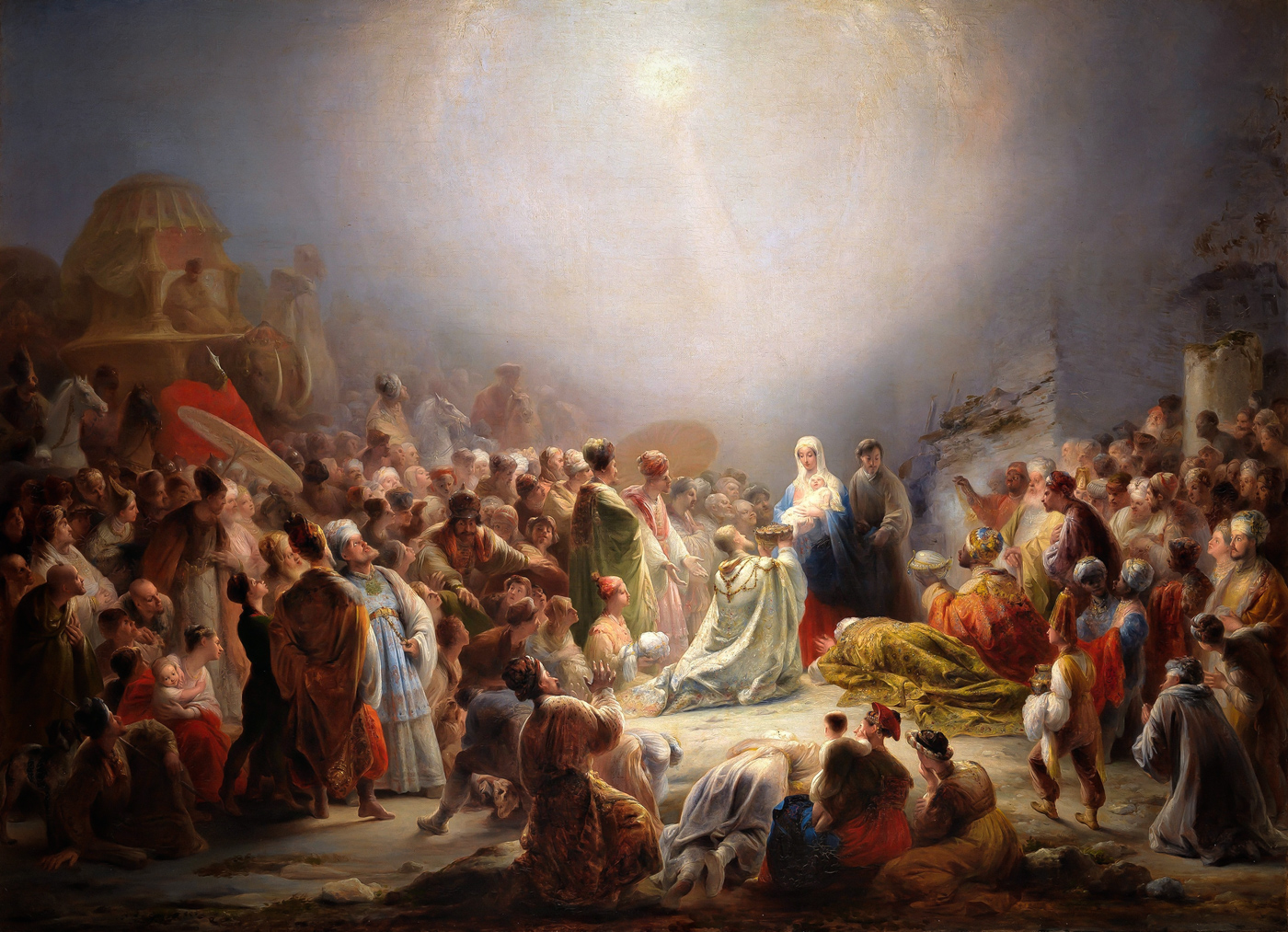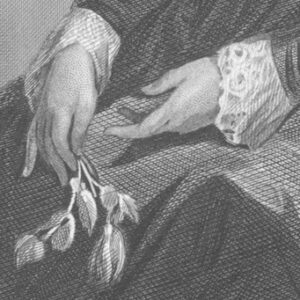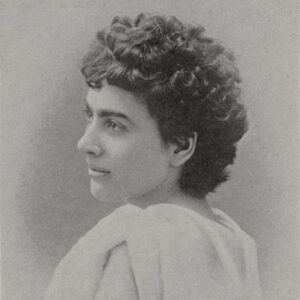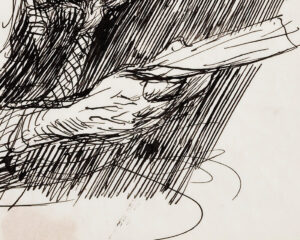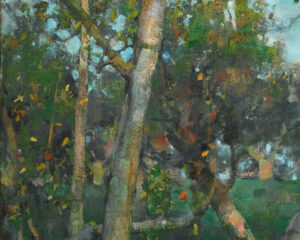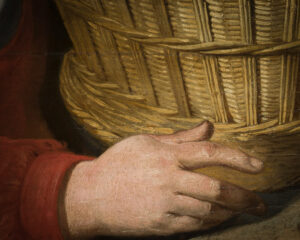Part of the Drama
An Epiphany About Epiphany

Mrs. Gina Loehr
Premium Subscribers
Sorry, this feature is only available for H&F Print Premium subscribers. You can sign up here.
(If you are already a Print Premium subscriber, be sure to click the authentication link you were sent by email so this won't happen again.)
I had an epiphany. It came about a month early — that is to say, about a month prior to the Epiphany, the Christian feast immediately following Christmastide.
My twelve-year-old daughter and I had spent weeks rehearsing for a local community theatre production of a lovely stage adaptation of Charles Dickens’ A Christmas Carol. Starting late in October, we gathered with our fellow cast members to pretend it was Christmas, five nights a week. I confess I was a bit worried that this premature delve into imagined holiday joys would sap the real Christmas from some of its splendor. I’m happy to report that my fear proved unnecessary — but, what’s more, the experience led to a revelation.
On the night of our last dress rehearsal, after we tightened up the final moments of the curtain call and closing song, just before the lights went dark, one of my talented castmates unexpectedly declared with great vigor and cheer, at the top of his booming voice, “Merry Christmas!” to the imaginary audience. I was delighted, in a way. I was also a bit pensive.
How wonderful, I thought, that this confident actor didn’t just yell out something vapid and colorless (“Seasons Greetings!”). His voice and his words rang with sincere festivity and joy, indicating a genuine Christmas wish for the Audience-Yet-To-Come. The sentiment was marvelous; Dickens would have been proud. Still, as his greeting fell dead on the field of empty seats, it struck me as odd that someone should bother to proffer this salute to a non-existent crowd. It necessarily rang a bit hollow.
That moment made me ponder the real value and effect of a live audience. The weeks of play practice had produced their own bona fide joy and artistry for us hobby-actors. Yet the play — even though we donned our gay apparel, completed our set changes perfectly, and recited our lines with yuletide gusto — could not be complete until opening night. Without people to receive our performance, to engage with our performance, the production could not possibly accomplish its ultimate purpose. It would remain closed in upon itself — not without its merit for the cast, but without ever becoming a gift extending beyond itself, beyond the four corners of a wooden stage.
It would remain closed in upon itself — not without its merit for the cast, but without ever becoming a gift extending beyond itself, beyond the four corners of a wooden stage.
Finally, on December first, instead of a rehearsal, we had at last a performance. With the addition of an audience full of theatregoers, the script was no longer just a set of words and actions tossed back and forth by the cast as a diverting post-workday hobby. It became a living, unrepeatable piece of art brought to fulfillment by the grateful guests themselves. The arrival of the folks we intended to entertain injected our words and actions with meaning and purpose. The laughter, the gasps, but even more, just the presence and energy of the audience transformed the play into an organic human exchange, utterly unique.
There are various reasons why our family’s television usually sits unused behind the costume box in our basement, only powered up on rare occasions, but one of them is keenly on my mind of late: Screens are so dismally one-directional. Theater is entirely different. 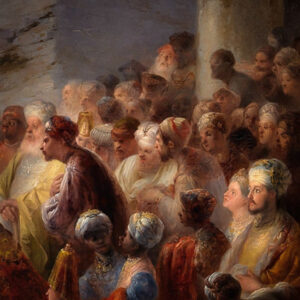 Throughout the whole grand history of drama, since ancient times, no two live performances have ever been exactly the same, because each one is an entirely unrepeatable exchange of self, between those on stage and those in the audience . . . whoever they may be. In a very real and very integral way, the people in attendance are part of the drama. There is an intimate bond between all present, formed in a shared purpose to create a shared story within a shared physical space. No one — neither actor nor audience — who really opens himself to the intimacy and gives of himself to the story will ever leave such an encounter unchanged.
Throughout the whole grand history of drama, since ancient times, no two live performances have ever been exactly the same, because each one is an entirely unrepeatable exchange of self, between those on stage and those in the audience . . . whoever they may be. In a very real and very integral way, the people in attendance are part of the drama. There is an intimate bond between all present, formed in a shared purpose to create a shared story within a shared physical space. No one — neither actor nor audience — who really opens himself to the intimacy and gives of himself to the story will ever leave such an encounter unchanged.
And here, at last, was my epiphany. It came in the final moment with the bellowing, again, of that particular message: “Merry Christmas!” These glorious words, the closing words of our performance and the opening words of humanity’s redemption, now leapt off the stage and into the hearts of a living audience. And it suddenly dawned on me that the drama of salvation needs an audience too.
The Good News proclaimed by the angels in that pasture in Bethlehem so many years ago was not meant only for the small cast then present. It was not simply a divine affirmation for the lead characters in the original Nativity scene. So, I now begin to think, the great Feast of the Epiphany celebrates the arrival of the audience. It is not until the guests appear that we have the crowning moment of the Christmas story. The gift of the Christ Child is now given not only to his parents and some lucky local stagehands, but to anyone who is willing to make the journey to his side.
So, I now begin to think, the great Feast of the Epiphany celebrates the arrival of the audience. It is not until the guests appear that we have the crowning moment of the Christmas story.
Call them wise men if you will, or Magi, the three kings, or Gaspar, Melchior, and Balthasar. Whoever they were, they came to Jesus from the farthest corners of the earth, led by the prophetic promise of salvation, guided by a beautiful light, ready to humbly bow down and receive what this child offered them. And their journey was well worthwhile. The Magi had the best seats in the house — right at the feet of Jesus. Right in that physical space with him, breathing the air he breathed. I believe there’s a spot right there reserved for each of us as well.
For the grand drama of Salvation is not something to watch, half-attentive, half-distracted, as if it were happening on a screen. It is the actual story, playing out right now, right around us, in our real world. 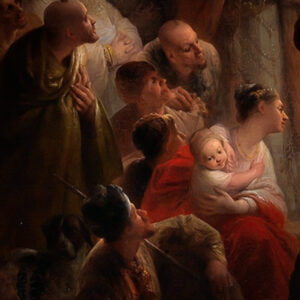 We are called to be part of it, to be intimately engaged with it, together with Christ, with Mary, Joseph, and those very wise men, and with everyone else who comes here, who comes to this shared space of Creation, newly redeemed — where Christ is still daily, physically present.
We are called to be part of it, to be intimately engaged with it, together with Christ, with Mary, Joseph, and those very wise men, and with everyone else who comes here, who comes to this shared space of Creation, newly redeemed — where Christ is still daily, physically present.
The image of the Holy Family nestled all snug in their blessed home is not without its merit, I say, but the fulfillment of the project comes when the guests appear. It is our arrival onto the scene that makes the drama of redemption capable of redeeming. This year, on the feast of the Epiphany, I am trying to think a little differently about the value and effect of our role in the story of salvation. Our presence matters. Not only to the Holy Child, but to the world. If we will open ourselves to this intimacy, if we will give of ourselves to this story, none of us will leave the encounter unchanged.

